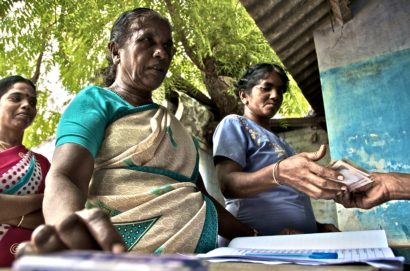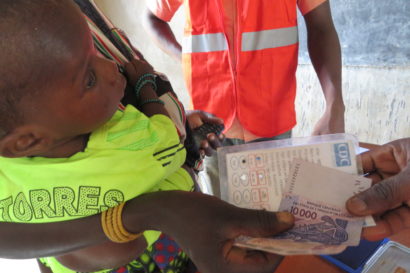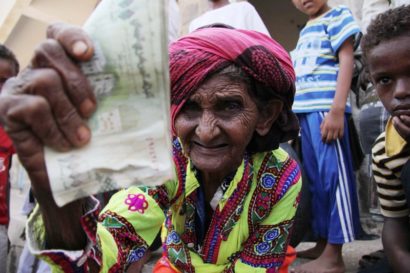Tag: cash transfers
The literature suggests that the effects of social protection initiatives such as cash transfers and vouchers on social cohesion are positive, but there is very little empirical evidence to back this. This review found no research comparing cash transfers and vouchers from the perspective of social cohesion. However, experience of cash transfers in developing countries,… Read more
There are various risks – notably theft, diversion, corruption, security, targeting, misuse by beneficiaries, inflationary effects – associated with cash transfer programmes in fragile contexts. However, the literature indicates that – while different – these are not any greater than those associated with other forms of aid, e.g. vouchers or in-kind goods, and could even… Read more
This five day rapid review looks at the experiences globally of civil society organisations providing or supporting accountability mechanisms in cash transfer programmes. Bhargava and Raha’s (2015: 12) review of civil society engagement with cash transfer programme accountability found only few studies, suggesting to them that there is a significant knowledge gap. A mixture of… Read more
The term resilience was brought into use by social science disciplines as a counter to discourse on vulnerability (Panter-Brick, 2014). Reducing vulnerability in post-conflict contexts at the household level broadly translates into securing food and livelihoods. This is what this report focuses on. In disaster risk discourse the following definition of resilience is used: the… Read more
The social policy of the Mexican Government is aimed to improve human development and wellbeing among Mexicans through the development of their capacities in health, education and nutrition, in order to promote equality and overcome poverty. Oportunidades is one of the core axes of Mexican policy, and in 2012 is benefiting 5.8 million families. Other… Read more
Cash transfer programs have become extremely popular in the developing world. A large literature analyzes their effects on schooling, health and nutrition, but relatively little is known about possible impacts on child development. This paper analyzes the impact of a cash transfer program on early childhood cognitive development. Children in households randomly assigned to receive… Read more
Background Mexico’s conditional cash transfer programme, Oportunidades, was started to improve the lives of poor families through interventions in health, nutrition, and education. We investigated the effect of Oportunidades on children almost 10 years after the programme began. Methods From April, 1998, to October, 1999, low-income communities were randomly assigned to be enrolled in Oportunidades… Read more
Aid to education is declining. Given the success of non-traditional financing in the health sector, the education sector has started to explore its potential to see if it can provide additional and alternative sources of finance to address some of the financing gap. Non-traditional financing is about more than raising additional funds; it is also… Read more







